Specialized aviation training programs designed to meet your unique technical and operational requirements, ensuring skill development tailored to your specific needs.
ADDITIONAL ONLINE TRAINING AVAILABLE
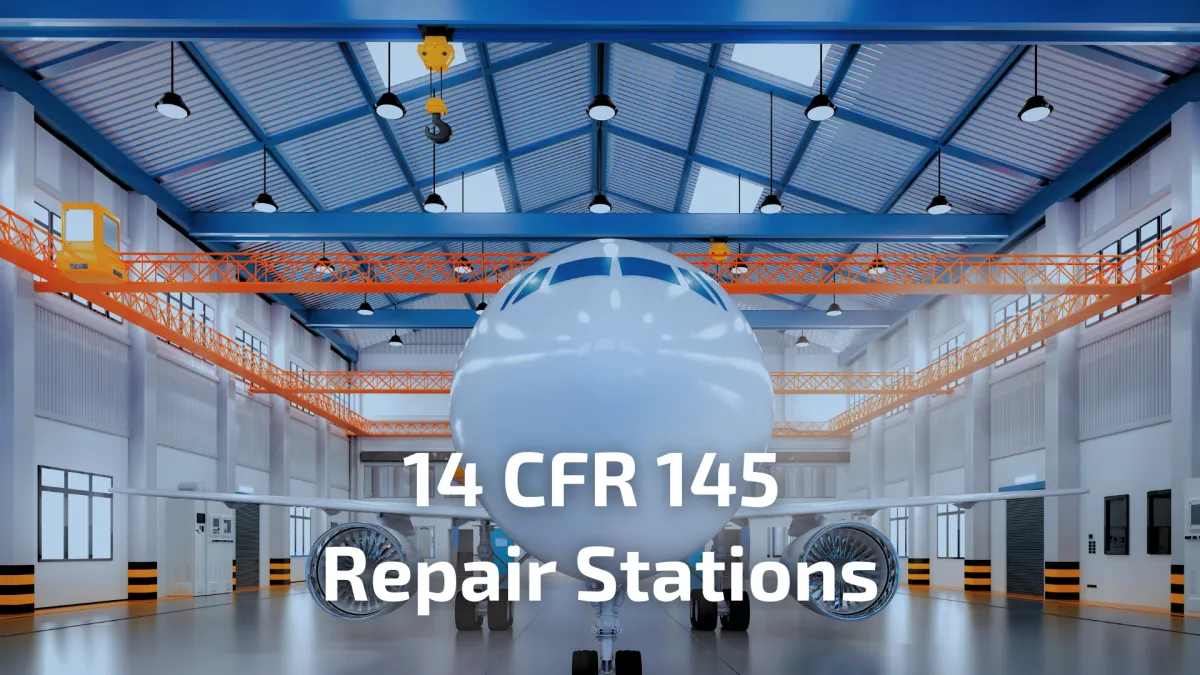
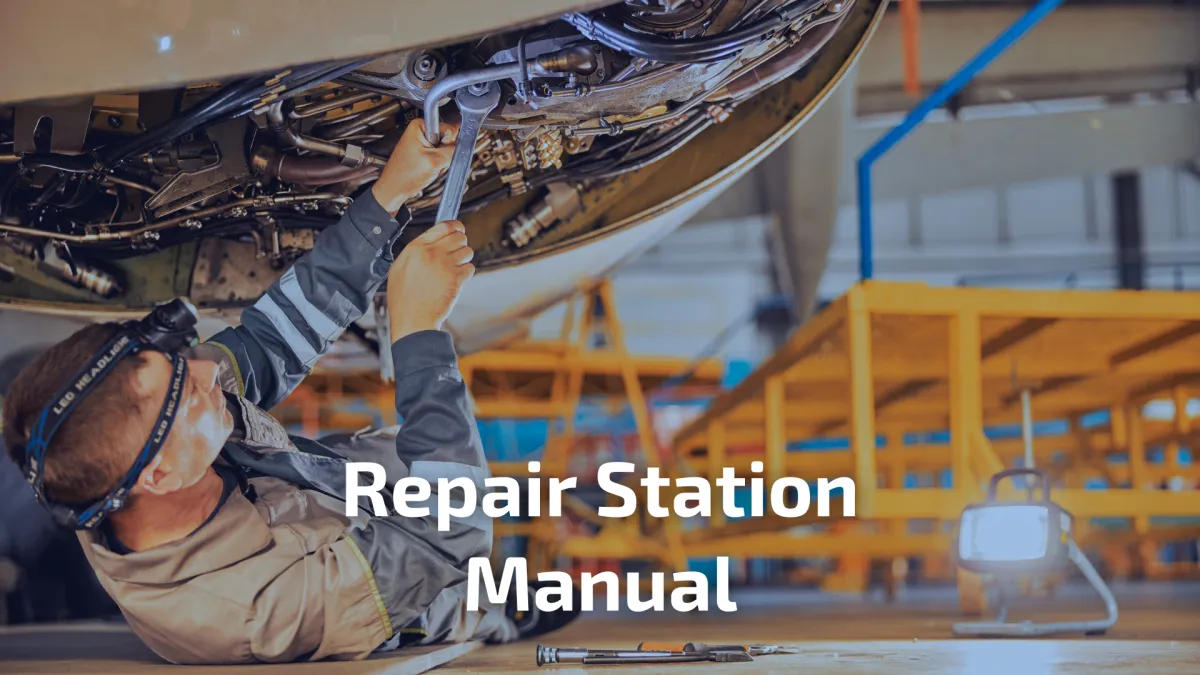

14 CFR 145
Repair Stations
This course is designed for quality managers, technicians, mechanics, and repair personnel involved in managing a repair station, as well as those looking to establish a 14 CFR Part 145 repair station. It covers the 14 CFR Part 145 regulation, which governs FAA-certificated repair stations, including the requirements for obtaining a repair station certificate and performing maintenance on aircraft, components, and related parts.
Repair Station
Manual
This course is designed for employees of 14 CFR 145 certified repair stations to become familiar with the station manual. It covers instructions on how to locate, understand, and use the manual, which contains essential regulatory procedures, organized in a clear and accessible manner for the staff.
DOT / FAA Anti-drug & Anti-alcohol for Employees
This course is designed to provide a comprehensive understanding of 14 CFR 120 and 49 CFR 40, focusing on FAA-mandated drug and alcohol testing regulations for employees in safety-sensitive positions. Participants will learn about compliance requirements, testing procedures, best practices, and the consequences of non-compliance to ensure aviation safety.


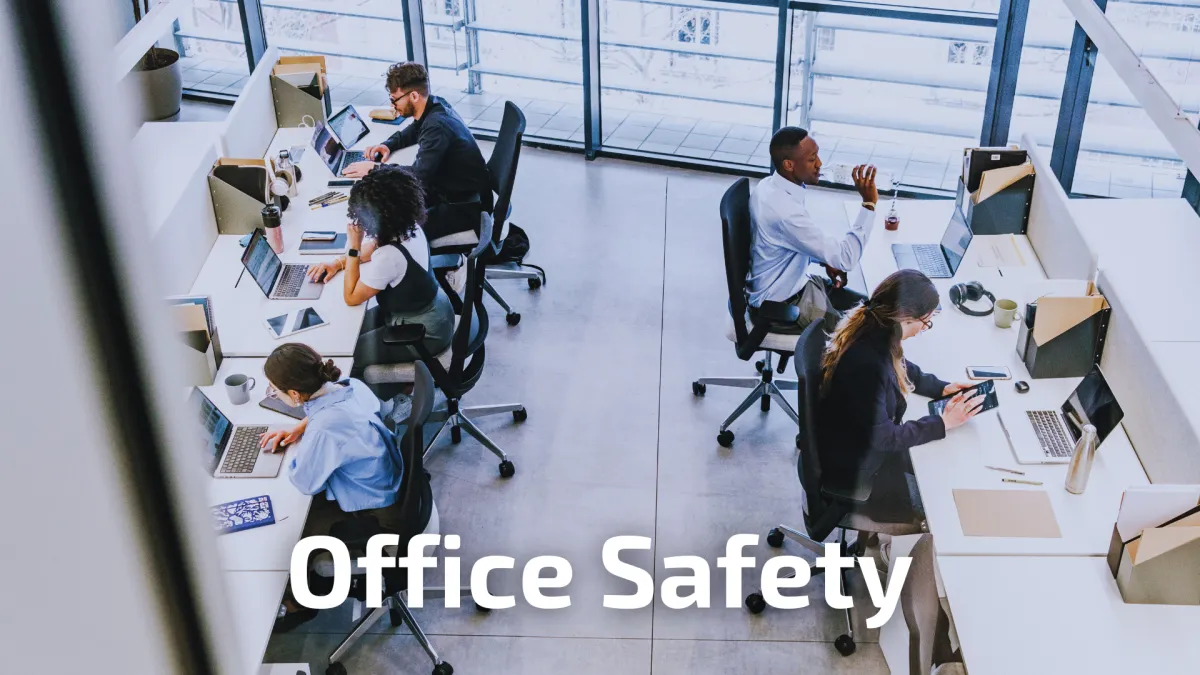
Quality Control
Manual
This course is designed for employees of 14 CFR 145 repair stations, focusing on the Quality Control Manual (QCM) and Repair Station Manual (RSM). It provides a comprehensive overview of the procedures, operational policies, and quality standards required to meet FAA regulations, ensuring excellence in inspection practices and quality control within the repair station.
49 CFR 172, Subpart “H” for Hazmat Employees
This course is designed for employees working with hazardous materials who directly impact the safety of their transportation. It covers the procedures for shipping, receiving, and handling products classified as Hazardous Materials, in accordance with 49 CFR 172.101 of the DOT.
Office Safety
This course is designed for employees working in an office environment. It covers how to identify and prevent risks to ensure a safer and more efficient workplace.
ADDITIONAL ONLINE TRAINING AVAILABLE

14 CFR 145
Repair Stations
This course is designed for quality managers, technicians, mechanics, and repair personnel involved in managing a repair station, as well as those looking to establish a 14 CFR Part 145 repair station. It covers the 14 CFR Part 145 regulation, which governs FAA-certificated repair stations, including the requirements for obtaining a repair station certificate and performing maintenance on aircraft, components, and related parts.

Repair Station
Manual
This course is designed for employees of 14 CFR 145 certified repair stations to become familiar with the station manual. It covers instructions on how to locate, understand, and use the manual, which contains essential regulatory procedures, organized in a clear and accessible manner for the staff.

DOT / FAA Anti-drug & Anti-alcohol for Employees
This course is designed to provide a comprehensive understanding of 14 CFR 120 and 49 CFR 40, focusing on FAA-mandated drug and alcohol testing regulations for employees in safety-sensitive positions. Participants will learn about compliance requirements, testing procedures, best practices, and the consequences of non-compliance to ensure aviation safety.

Quality Control
Manual
This course is designed for employees of 14 CFR 145 repair stations, focusing on the Quality Control Manual (QCM) and Repair Station Manual (RSM). It provides a comprehensive overview of the procedures, operational policies, and quality standards required to meet FAA regulations, ensuring excellence in inspection practices and quality control within the repair station.

49 CFR 172, Subpart “H” for Hazmat Employees
This course is designed for employees working with hazardous materials who directly impact the safety of their transportation. It covers the procedures for shipping, receiving, and handling products classified as Hazardous Materials, in accordance with 49 CFR 172.101 of the DOT.

Office Safety
This course is designed for employees working in an office environment. It covers how to identify and prevent risks to ensure a safer and more efficient workplace.

Back Injury Prevention in the Workplace
This course is designed for all employees whose work involves physical activity or ergonomic risks, including warehouse workers, office staff, maintenance teams, machine operators and others in similar roles.
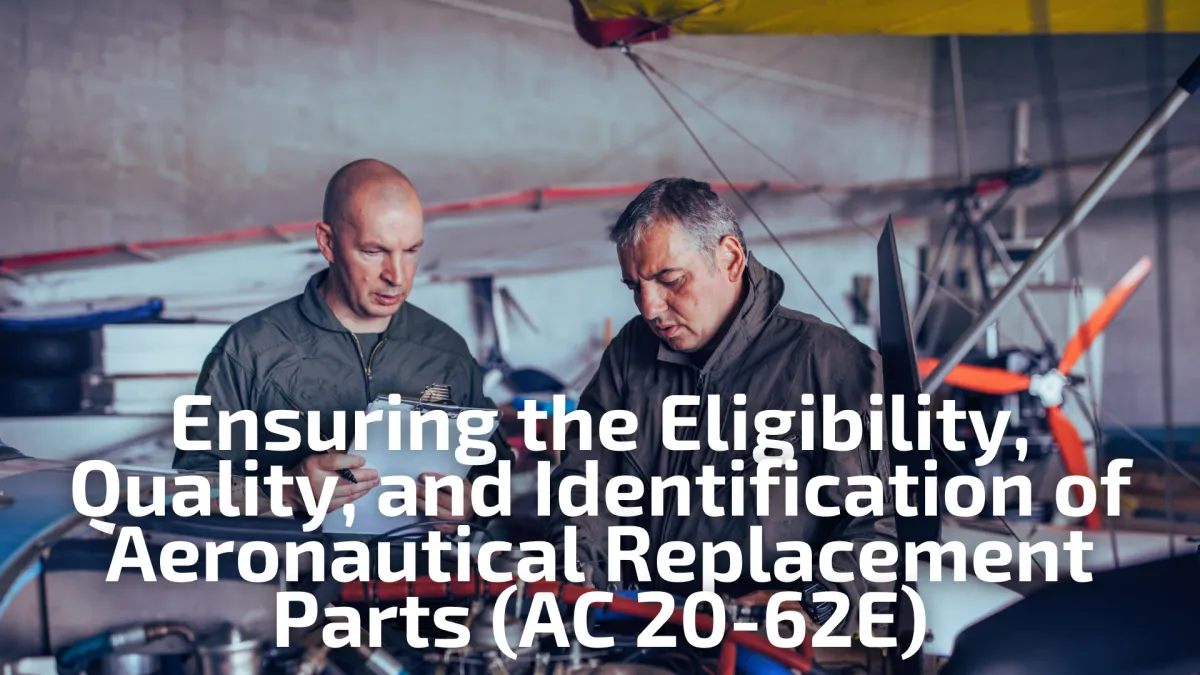
Ensuring the Elegibility, Quality, and Identification of Aeronautical Replacement Parts (AC 20-62E)
This course is designed to support operators, maintenance organizations, and technicians in evaluating the quality, eligibility, and traceability of aeronautical replacement parts.
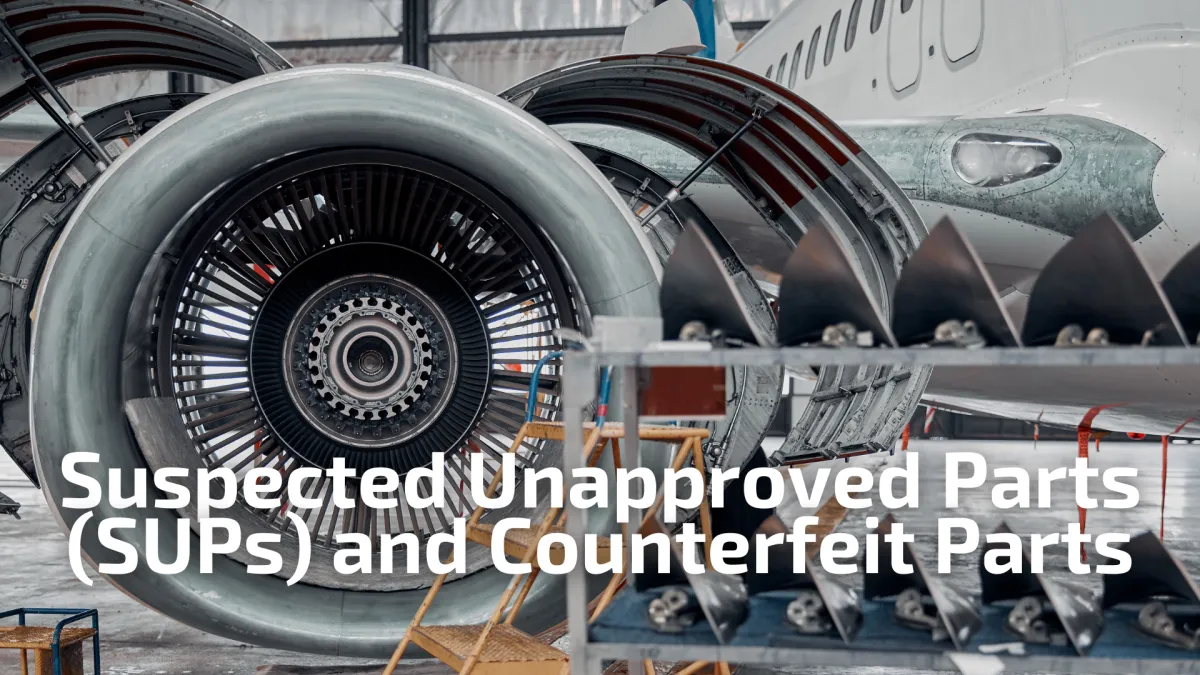
Suspected Unapproved Parts (SUPs) and Counterfeit Parts
This course is designed to explain why this topic is critical to operational safety, supply chain integrity, and regulatory compliance in aviation. It also covers key aspects such as identifying red flags, evaluating suppliers, conducting effective receiving inspections, and following the appropriate channels for reporting.
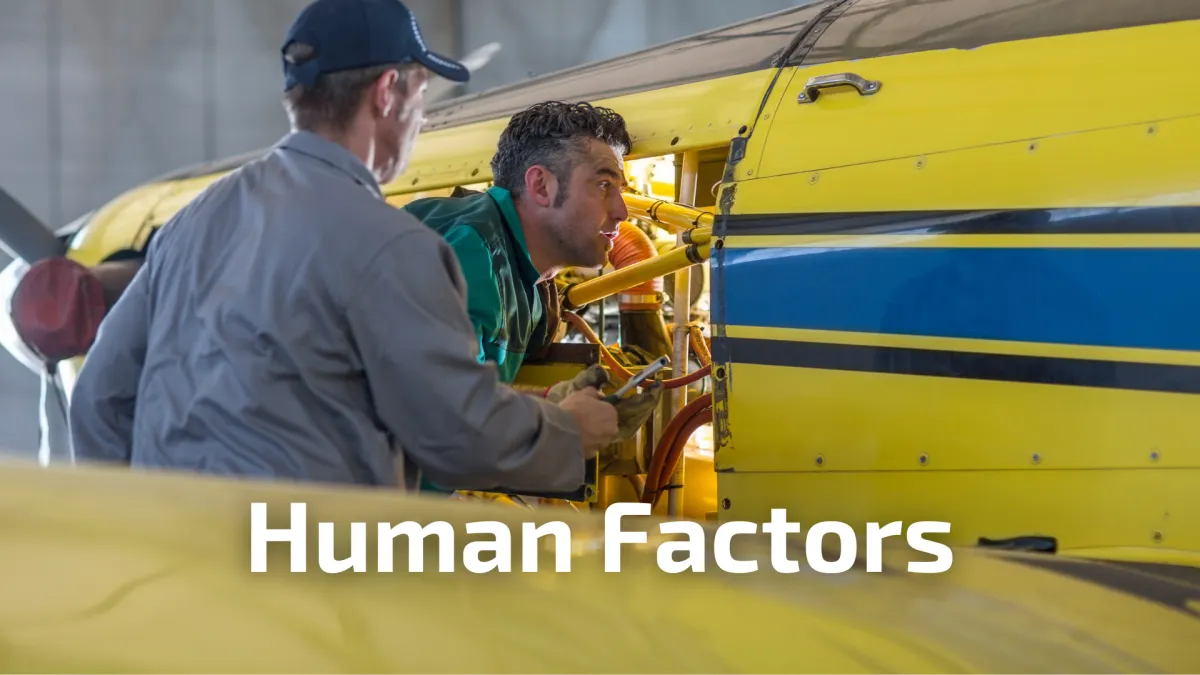
Human Factors
This course is designed for aviation maintenance professionals and provides practical tools to identify, understand, and manage the human factors that impact performance. Aligned with the requirements of 14 CFR 460.15, it is essential training for personnel in the industry, including repair stations.
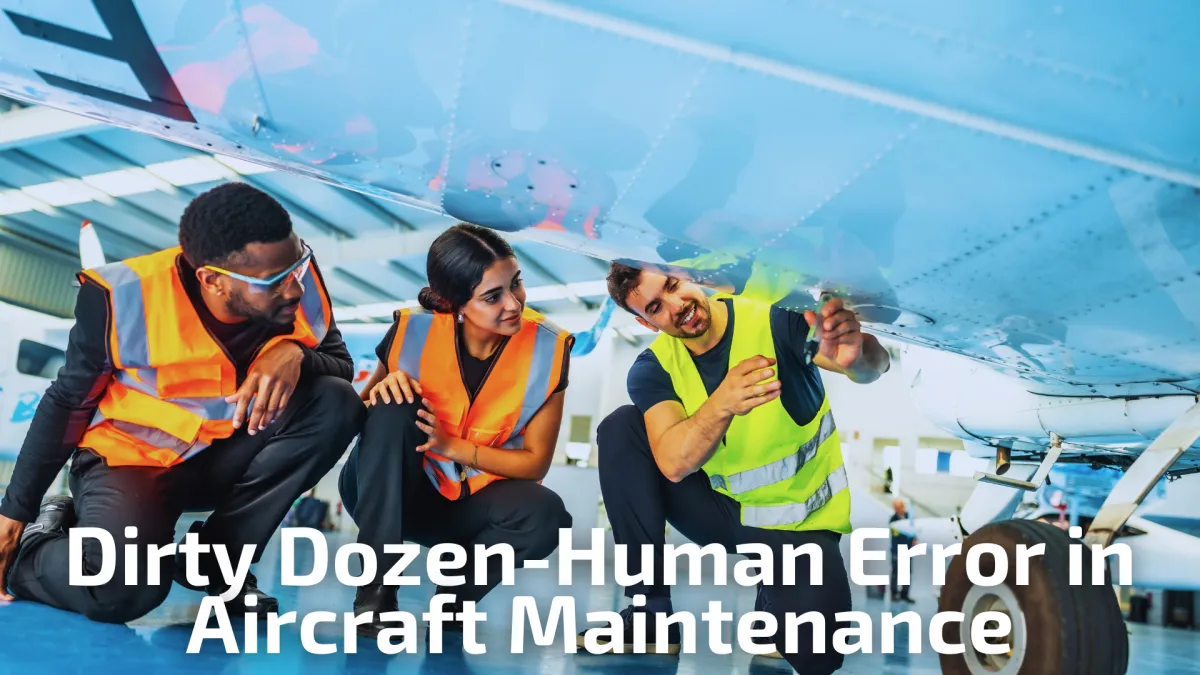
Dirty Dozen - Human Error in Aircraft Maintenance
This course is designed for technicians, inspectors, supervisors, and other aviation maintenance professionals committed to operational safety.
The term “Dirty Dozen” was introduced by Transport Canada after identifying the 12 most common conditions that contribute to errors during maintenance tasks.
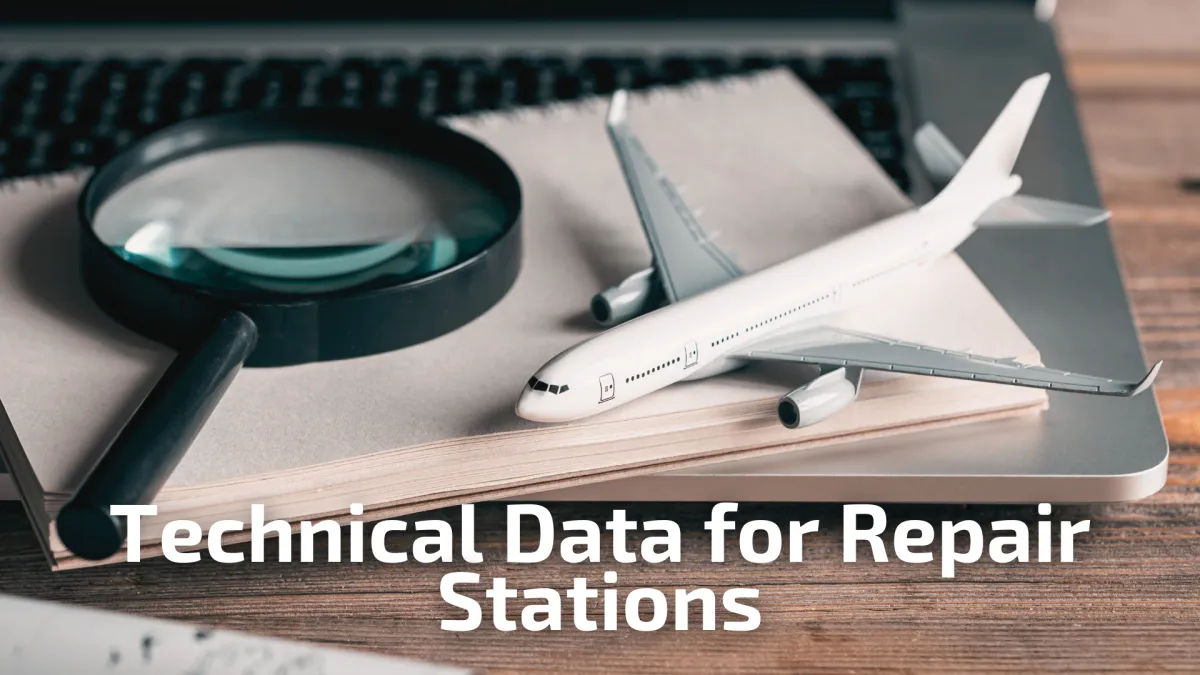
Technical Data for Repair Stations
This course is designed for technicians, supervisors, inspectors, and all personnel involved in aircraft maintenance at certified repair stations. The objective is to ensure that personnel know how to access, maintain, and use up-to-date technical data to comply with applicable regulations, FAA requirements, and ensure airworthiness.
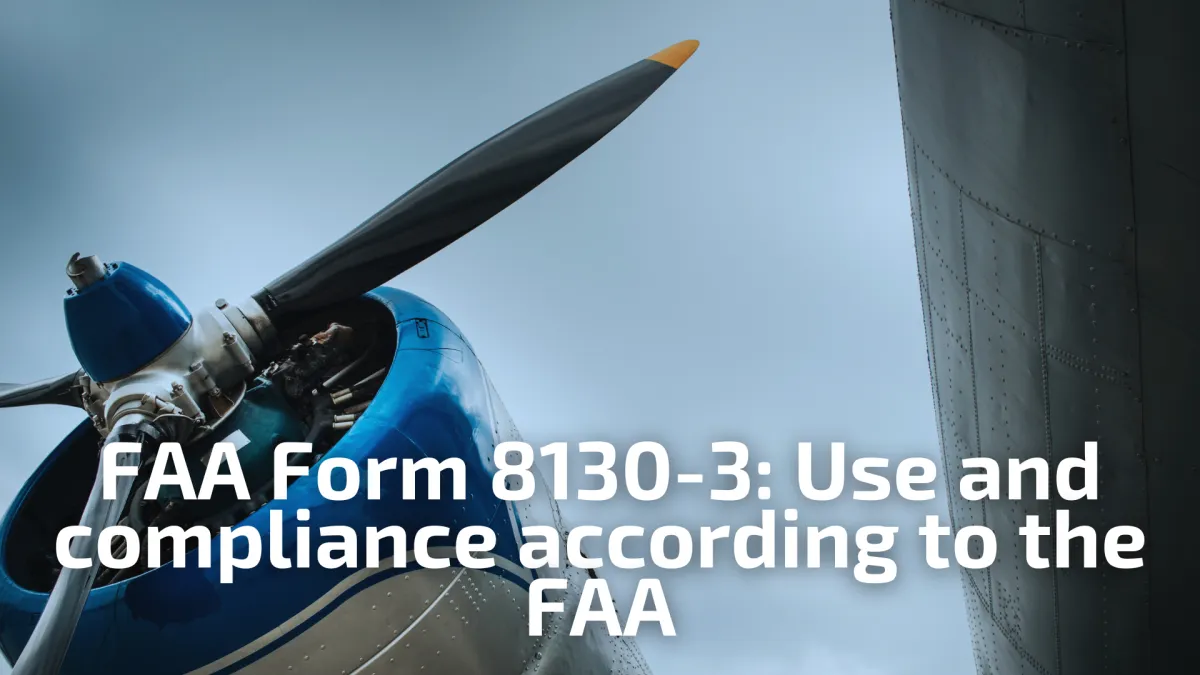
FAA Form 8130-3: Use and compliance according to the FAA
This course is designed for technical personnel, inspectors, quality professionals, and others involved in the maintenance, manufacturing, or export of aeronautical products.
The course is structured around three specific areas of focus:
– General procedures based on FAA Order 8130.21H.
– Use of the form by certified repair stations and air carriers.
– Use of the form by production approval holders (PAHs).
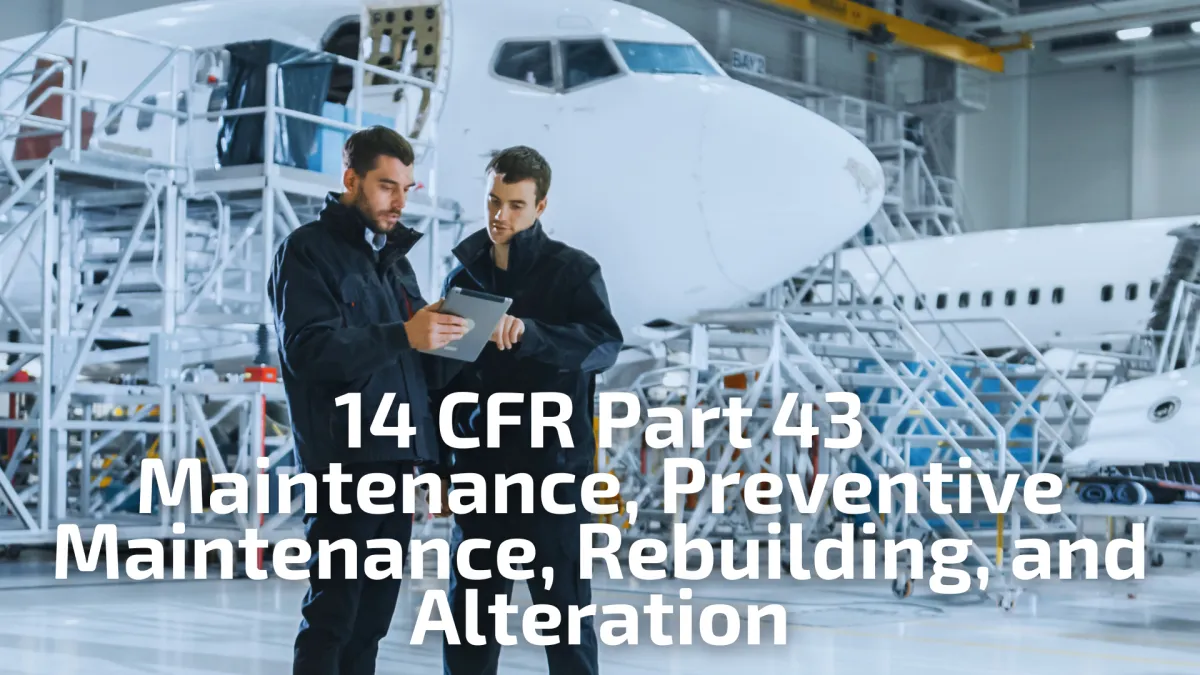
FAA Form 8130-3: Use and compliance according to the FAA
This course is designed for mechanics, repairmen, technicians, and repair station personnel involved in performing or managing maintenance activities.
It covers 14 CFR Part 43, which outlines the FAA regulations for maintenance, preventive maintenance, rebuilding, and alteration. The course explains who may perform these tasks, how records must be maintained, and applicable limitations.
Ideal for ensuring regulatory compliance and airworthiness in FAA-regulated environments.
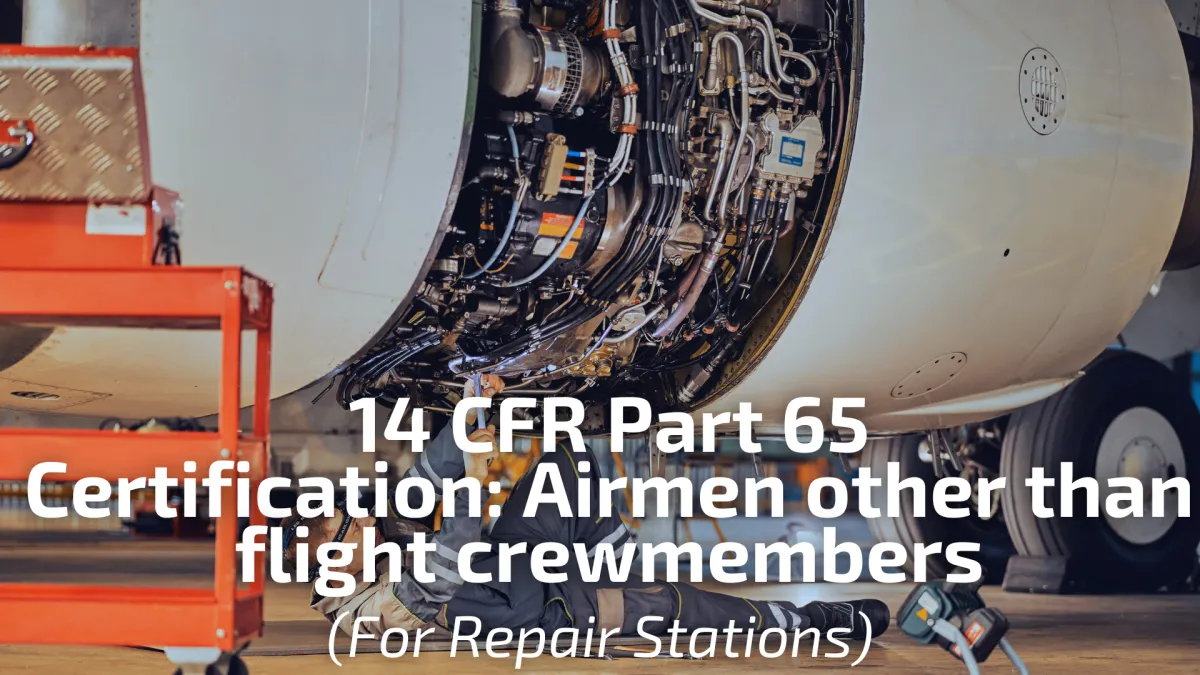
14 CFR Part 65 Certification: Airmen other than flight crewmembers
(for repair stations)
This course covers the structure, requirements, and scope of 14 CFR Part 65, with an emphasis on its practical application within repair stations and in technical roles related to aircraft maintenance.
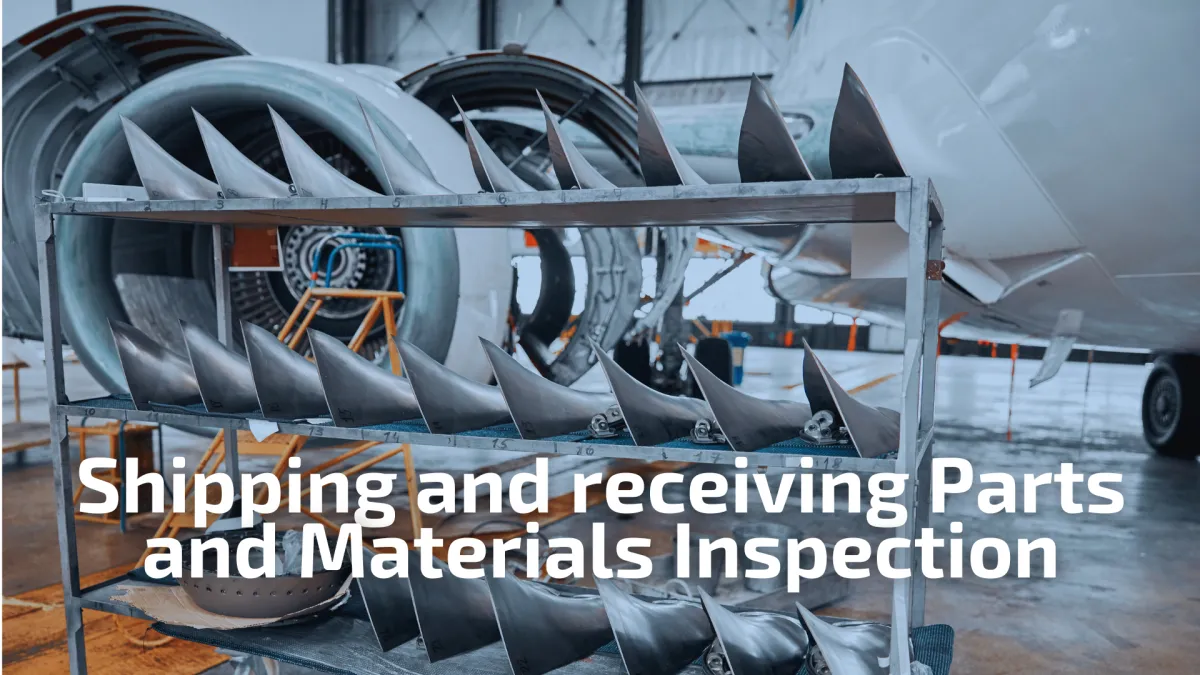
Shipping and receiving Parts and Materials Inspection
This course is designed for technicians, inspectors, logistics personnel, and quality professionals involved in the handling, inspection, or verification of aircraft parts and materials. Here, you will learn the key concepts to develop or strengthen an effective receiving inspection system, in accordance with the FAA recommendations outlined in Advisory Circular AC 20-154A.
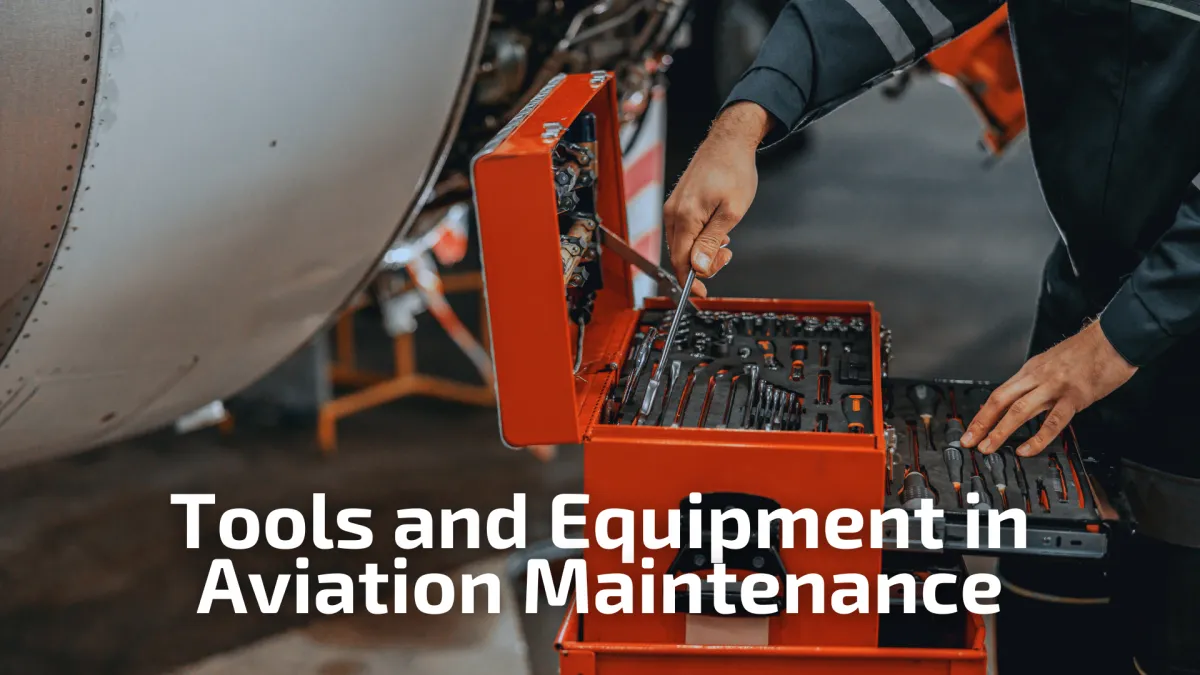
Tools and Equipment in Aviation Maintenance
This course is designed for technical personnel working in FAA-certified repair stations, including mechanics, inspectors, supervisors, and support staff.
You will learn how to identify, use, and maintain tools and equipment safely and in compliance with FAA requirements, OSHA regulations, and industry best practices.

Airworthiness in FAA-Certificated Repair Stations
This course is designed to provide technicians, inspectors, and maintenance personnel with a clear and practical understanding of the airworthiness requirements applicable to FAA-certificated repair stations. It covers regulatory fundamentals, airworthiness certificates, the role of Airworthiness Directives (ADs), and the key responsibilities that ensure ongoing compliance with applicable regulations.
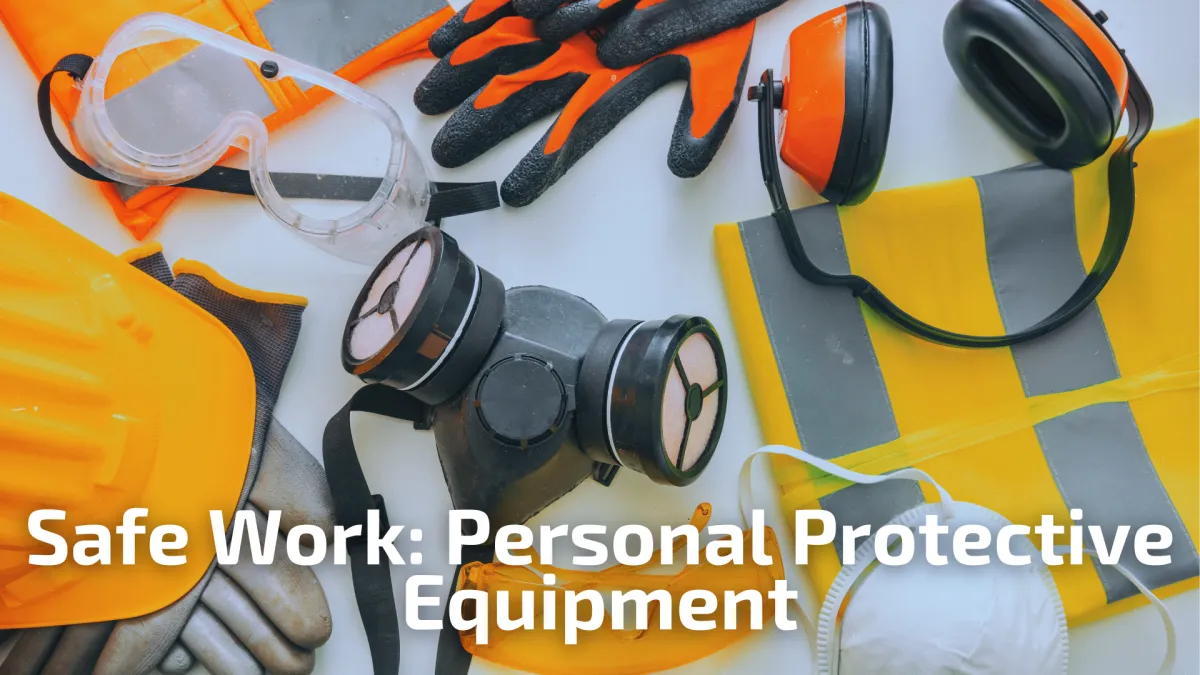
Safe Work: Personal Protective Equipment
This course will provide you with the essential knowledge to properly select, use, and maintain personal protective equipment, commonly known as PPE, in technical work environments.
This course is designed for technicians, supervisors, quality inspectors, and anyone involved in operational environments.
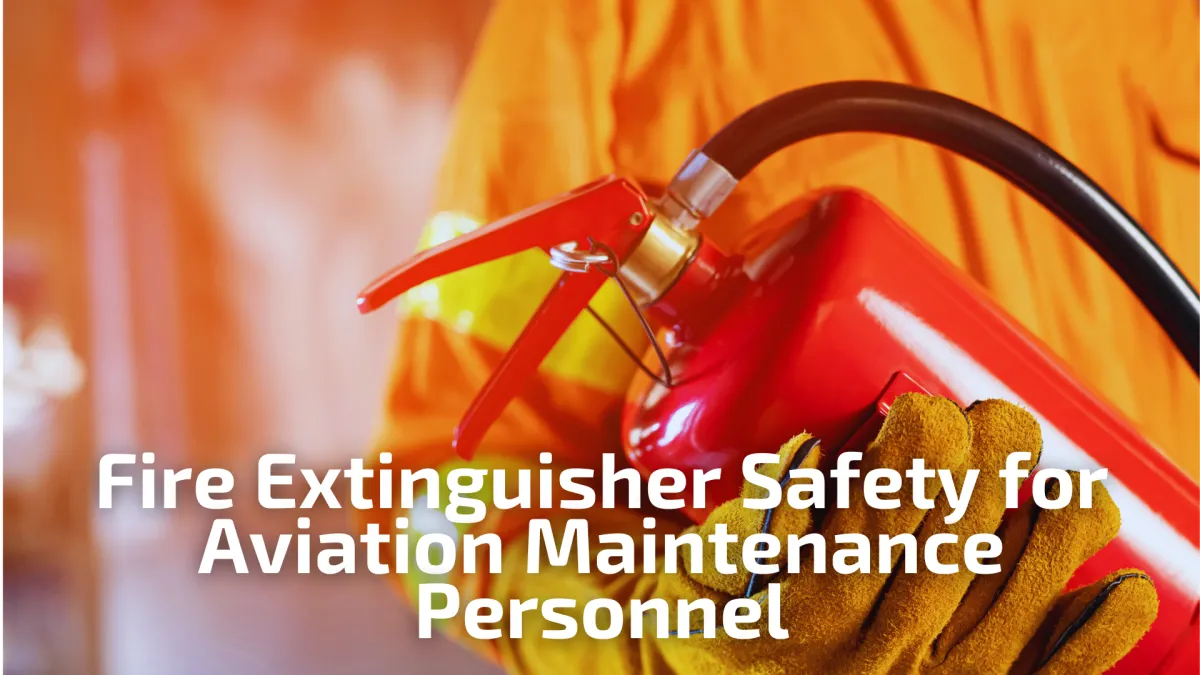
Fire Extinguisher Safety for Aviation Maintenance Personnel
This course is designed for maintenance technicians, ground crew, and fuel handlers, and is based on OSHA, FAA, and NFPA standards. You will learn how to identify different classes of fire, select the correct extinguisher, and apply safe intervention techniques during emergencies to prevent accidents and ensure compliance with aviation safety standards.
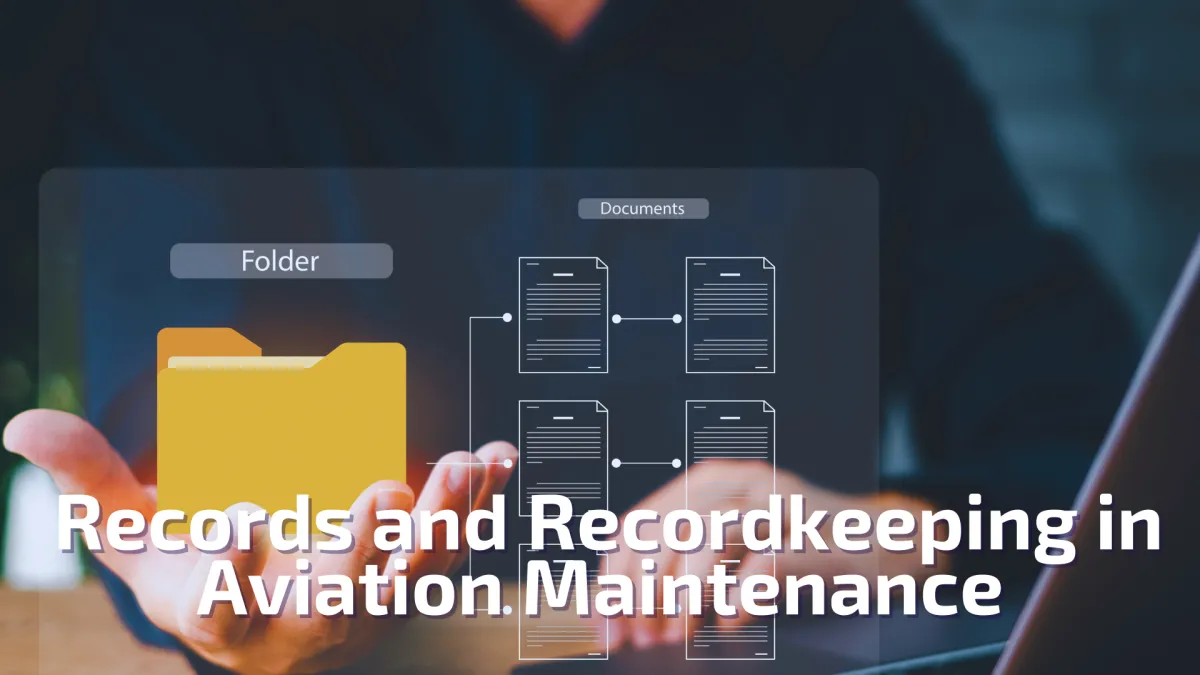
Records and Recordkeeping in Aviation Maintenance
This course is designed for aircraft maintenance technicians and engineers, licensed A&P mechanics, personnel from FAA Part 145 and EASA Part-145 repair stations, aircraft owners and operators, as well as parts suppliers involved in maintenance activities.

The Foreign Object Debris (FOD) Control in Aviation
This Course is designed for maintenance technicians, inspectors, and repair station personnel. It covers the identification, risks, and prevention of FOD through proper housekeeping, tool control, and compliance with AS9146, providing the foundation for safer and more efficient aviation operations.
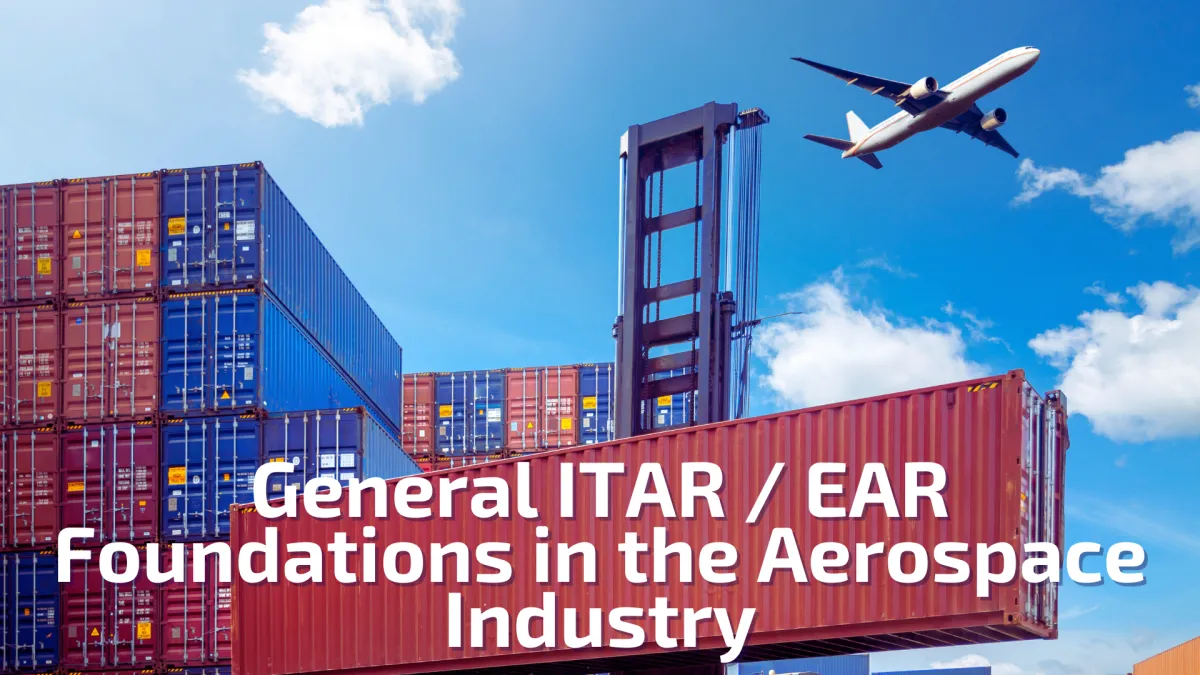
General ITAR / EAR Foundations in the Aerospace Industry
This course is designed for technicians, engineers, and professionals who work with exports, technical information, or relationships with international partners.
The objective is to understand which regulations apply to the aerospace industry, how they affect daily work, and how to comply with them in order to avoid severe penalties.
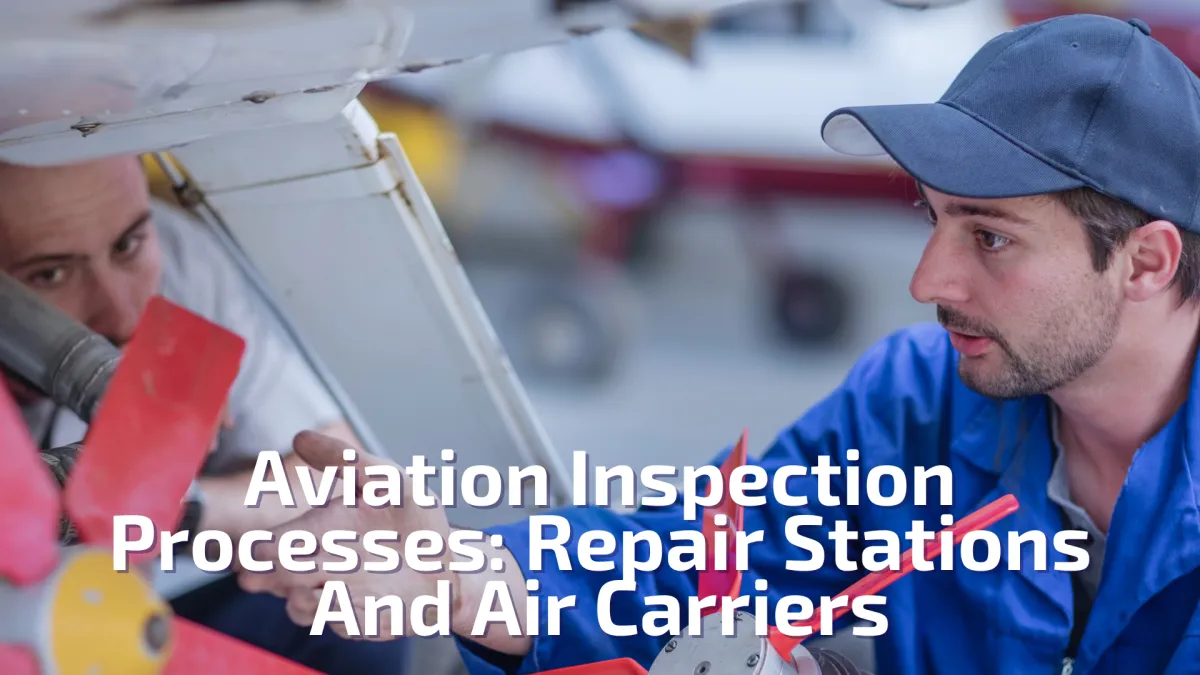
Aviation Inspection Processes: Repair Stations And Air Carriers
This course is designed for professionals involved in the operational and quality chain, including inspection, operations, logistics, warehouse, and customer service.
The objective is to provide essential knowledge on inspection processes, applicable regulations, and best practices to ensure operational safety and regulatory compliance in aviation.
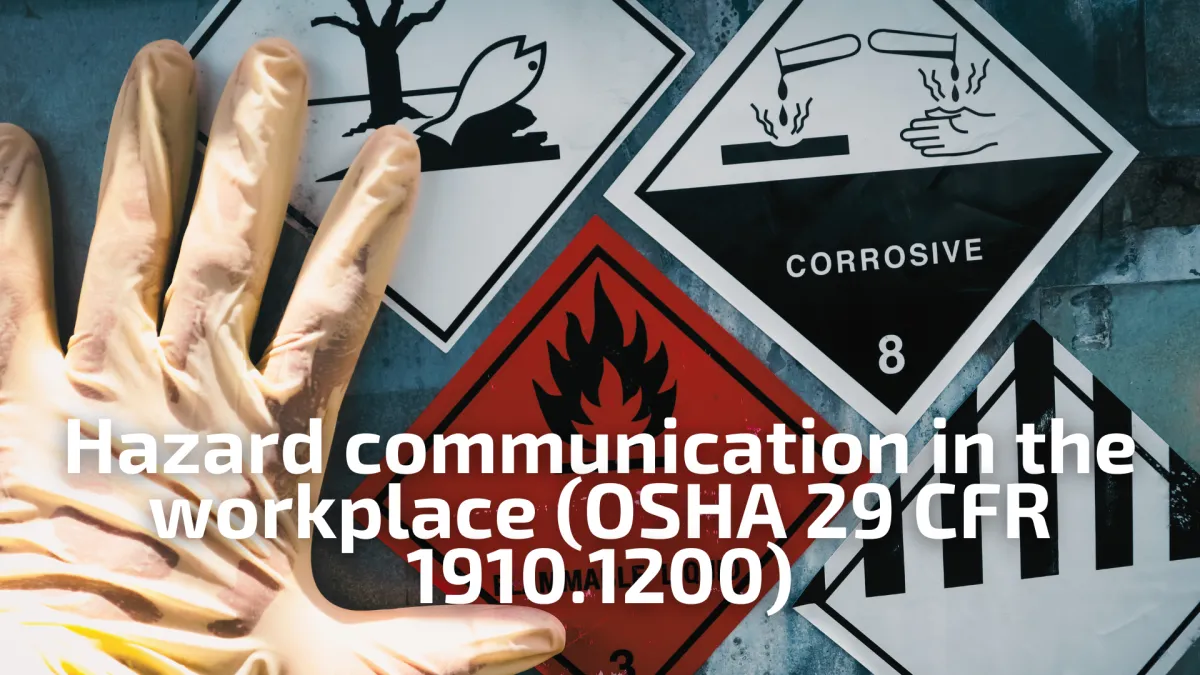
Hazard communication in the workplace (OSHA 29 CFR 1910.1200)
This course is designed for all employees who use or may be exposed to hazardous chemicals during their work activities. It includes operational staff as well as supervisors, technicians, and industrial safety personnel.
It also provides guidance for employers, maintenance managers, and area leaders who need to implement or maintain a Hazard Communication program in compliance with OSHA standards.
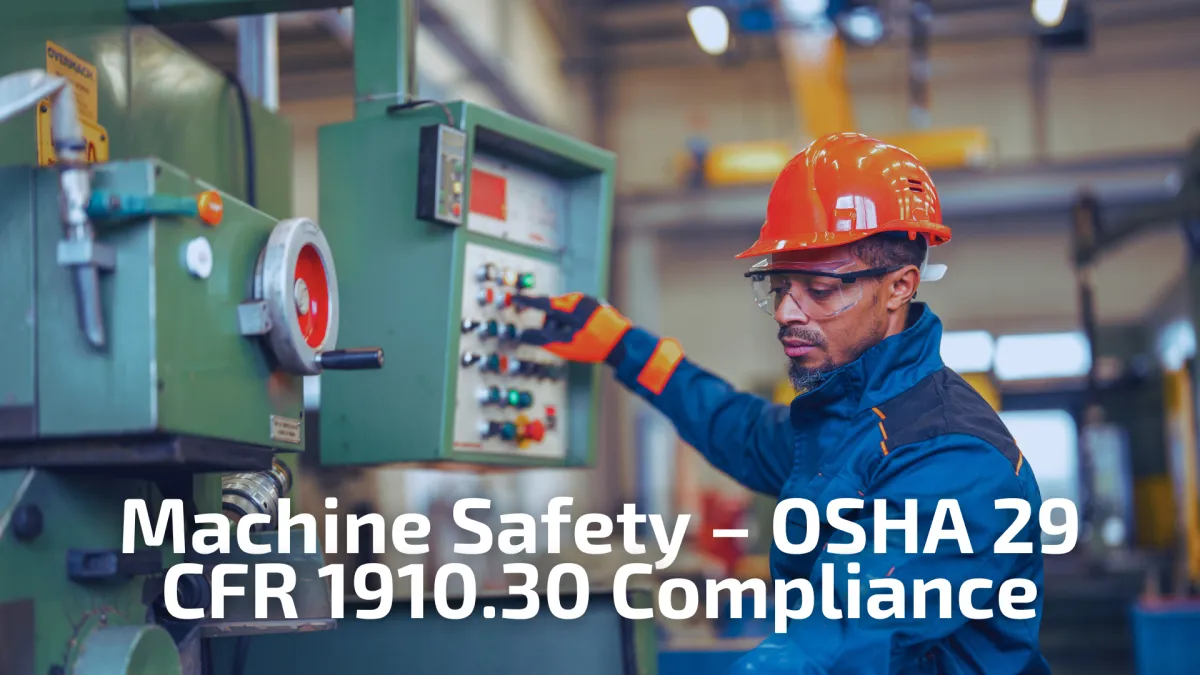
Machine Safety – OSHA 29 CFR 1910.30 Compliance
This course is intended for machine operators, maintenance technicians, plant supervisors, industrial safety personnel, and team leaders who are responsible for operating, inspecting, or maintaining mechanical equipment in the workplace.
It is also designed for employers, safety managers, and administrative staff who need to ensure compliance with OSHA standards in their workplaces.

Emergency Response: CPR and AED Training
This course has been designed to provide workers and supervisors with the essential knowledge and skills to respond quickly, safely, and effectively to a medical emergency while waiting for professional assistance.
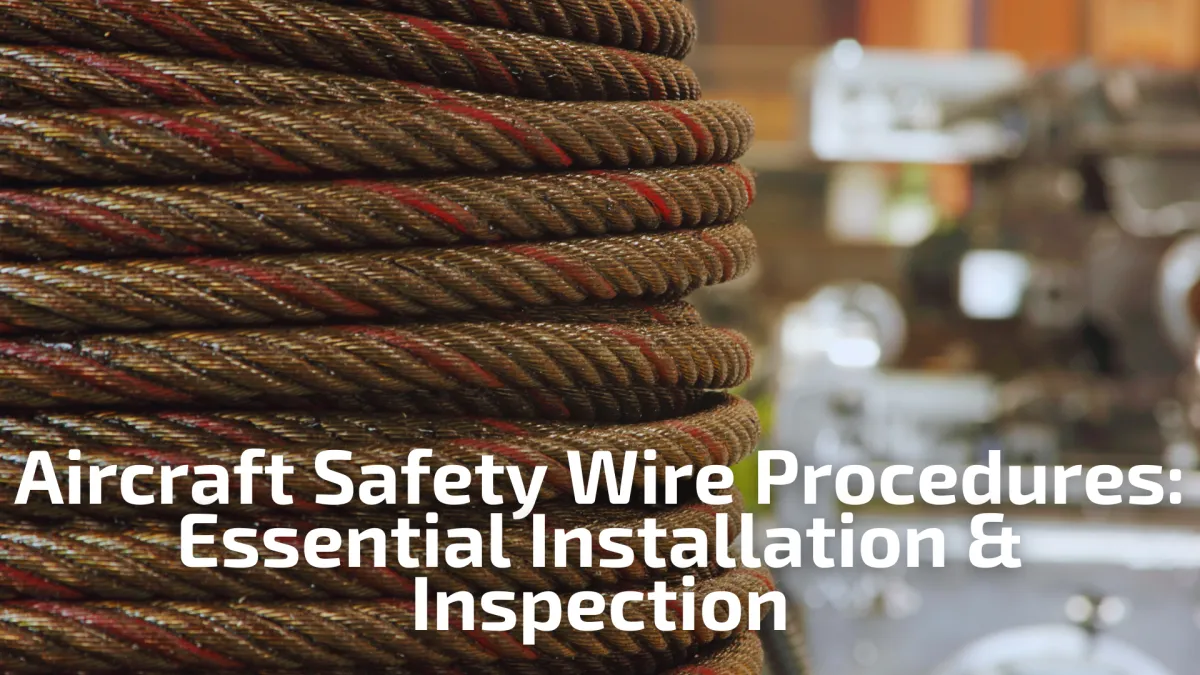
Aircraft Safety Wire Procedures: Essential Installation & Inspection
This course is designed for technicians, inspectors, and maintenance personnel who perform or supervise safety wire installations on aircraft, promoting the correct application of established practices to maintain the integrity and safety of mechanical components.
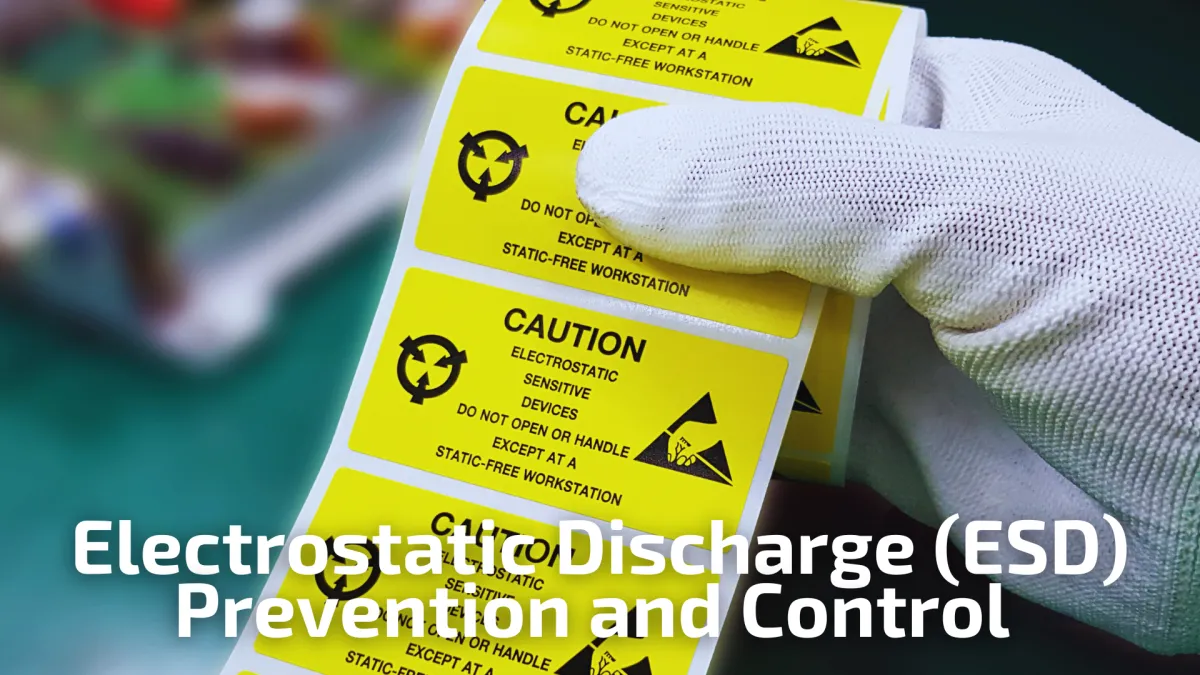
Electrostatic Discharge (ESD) Prevention and Control
This course is designed to provide technical, maintenance, and aerospace manufacturing personnel with the knowledge and practical skills necessary to prevent, control, and mitigate the effects of electrostatic discharges, thereby ensuring the integrity of electronic components and the overall quality of aerospace processes.
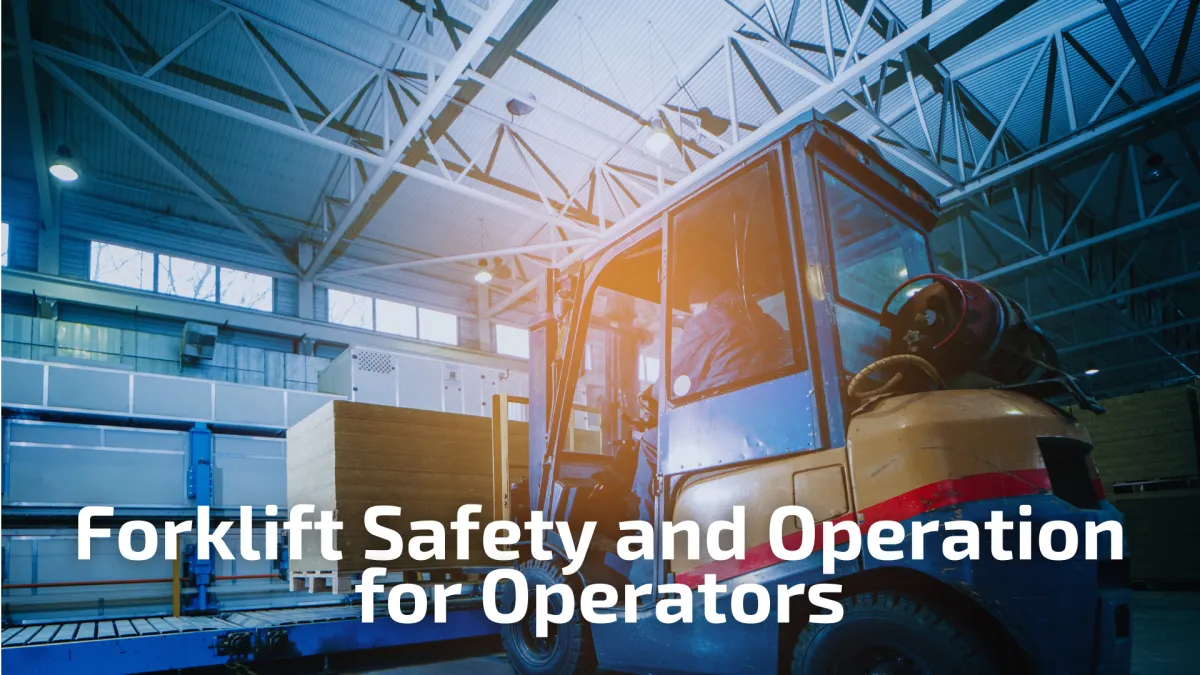
Forklift Safety and Operation for Operators
This course is designed to enable the operator to acquire the knowledge, skills, and attitudes necessary to operate a forklift safely and efficiently, in compliance with current regulations.
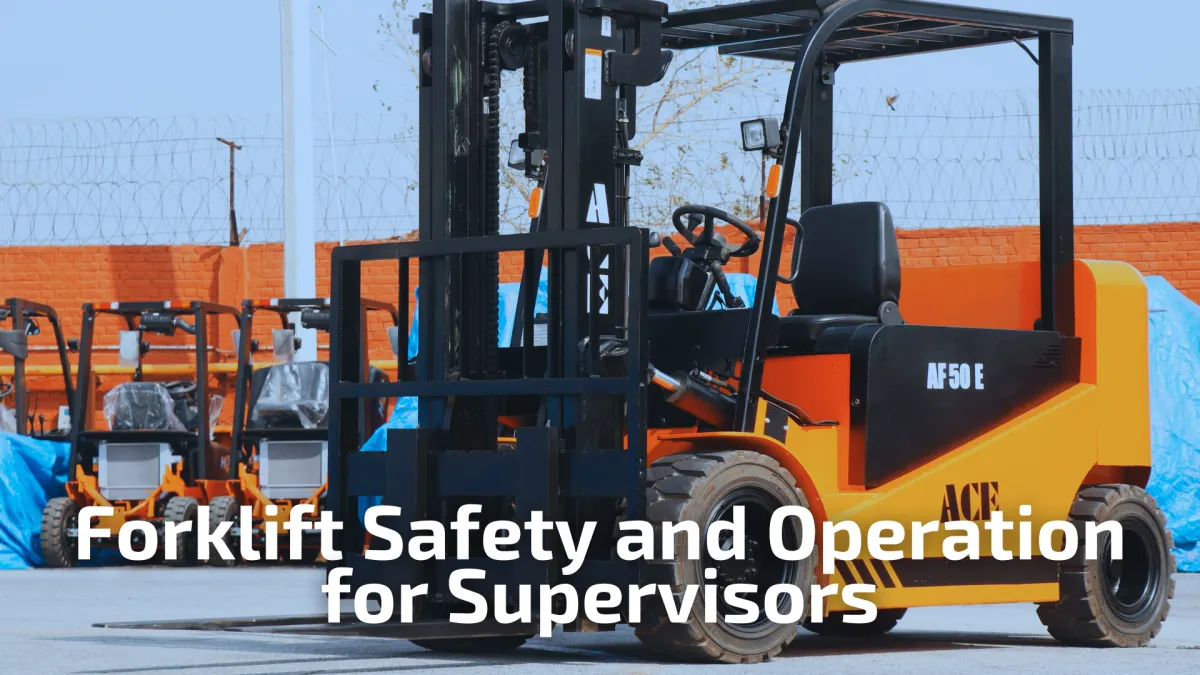
Forklift Safety and Operation for Operators
This course has been designed to provide supervisors with the skills and knowledge necessary to manage, oversee, and optimize the safe operation of forklift trucks. Its purpose is to strengthen safety leadership, improve the ability to identify and control risks, and ensure that operators perform their tasks in accordance with established standards.
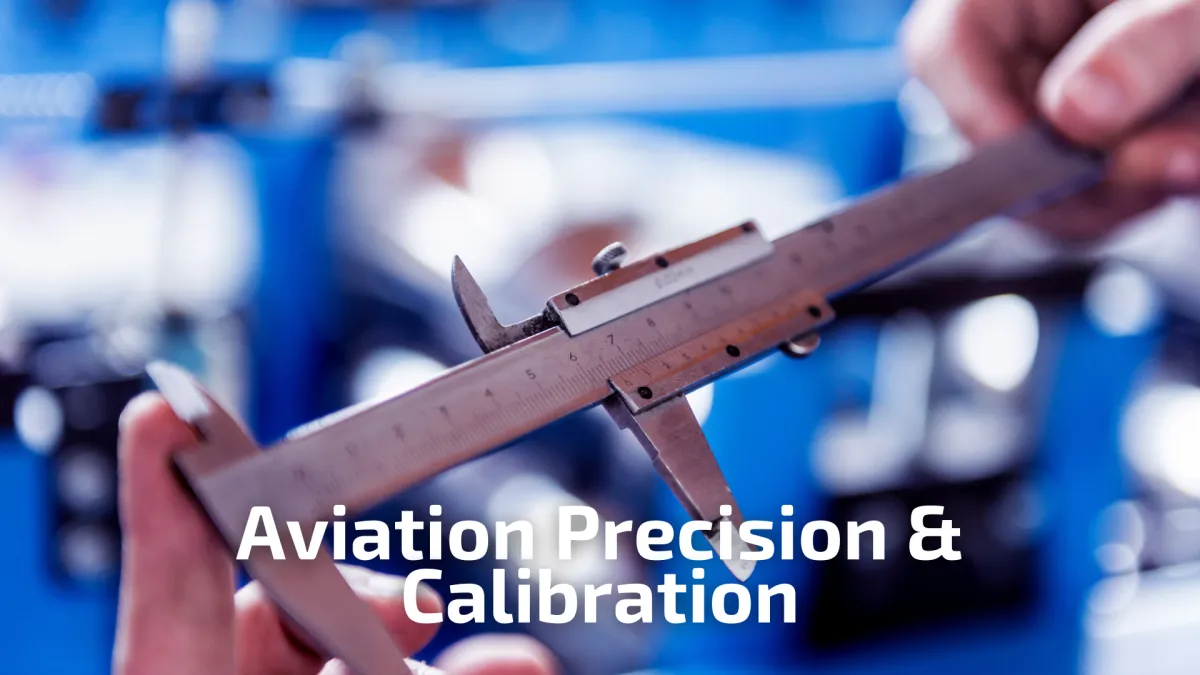
Aviation Precision & Calibration
This course has been designed for aviation maintenance and technical personnel. Throughout this training, we will cover the importance of precision in aviation and how calibration directly impacts safety, reliability, and the airworthiness of every aircraft.
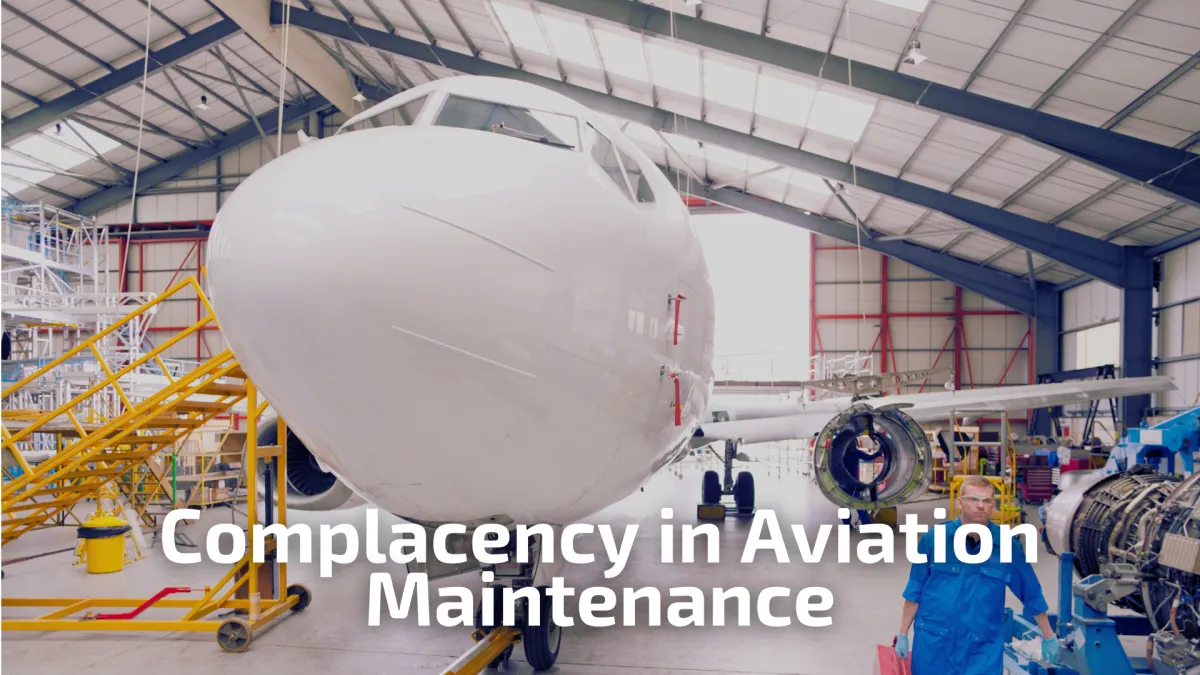
Complacency in Aviation Maintenance
This course has been designed for personnel who are directly or indirectly involved in aircraft maintenance, inspection, supervision, quality management, and operations, including maintenance technicians, inspectors, engineers, supervisors, and safety personnel.



Back Injury Prevention in the Workplace
This course is designed for all employees whose work involves physical activity or ergonomic risks, including warehouse workers, office staff, maintenance teams, machine operators and others in similar roles.
Ensuring the Elegibility, Quality, and Identification of Aeronautical Replacement Parts (AC 20-62E)
This course is designed to support operators, maintenance organizations, and technicians in evaluating the quality, eligibility, and traceability of aeronautical replacement parts.
Suspected Unaproved Parts (SUPs) and Counterfeit Parts
This course is designed to explain why this topic is critical to operational safety, supply chain integrity, and regulatory compliance in aviation. It also covers key aspects such as identifying red flags, evaluating suppliers, conducting effective receiving inspections, and following the appropriate channels for reporting.



Human Factors
This course is designed for aviation maintenance professionals and provides practical tools to identify, understand, and manage the human factors that impact performance. Aligned with the requirements of 14 CFR 460.15, it is essential training for personnel in the industry, including repair stations.
Dirty Dozen - Human Error in Aircraft Maintenance
This course is designed for technicians, inspectors, supervisors, and other aviation maintenance professionals committed to operational safety.
The term “Dirty Dozen” was introduced by Transport Canada after identifying the 12 most common conditions that contribute to errors during maintenance tasks.
Technical Data for Repair Stations
This course is designed for technicians, supervisors, inspectors, and all personnel involved in aircraft maintenance at certified repair stations. The objective is to ensure that personnel know how to access, maintain, and use up-to-date technical data to comply with applicable regulations, FAA requirements, and ensure airworthiness.



FAA Form 8130-3: Use and compliance according to the FAA
This course is designed for technical personnel, inspectors, quality professionals, and others involved in the maintenance, manufacturing, or export of aeronautical products.
The course is structured around three specific areas of focus:
– General procedures based on FAA Order 8130.21H.
– Use of the form by certified repair stations and air carriers.
– Use of the form by production approval holders (PAHs).
14 CFR Part 43 – Maintenance, Preventive Maintenance, Rebuilding, and Alteration
This course is designed for mechanics, repairmen, technicians, and repair station personnel involved in performing or managing maintenance activities.
It covers 14 CFR Part 43, which outlines the FAA regulations for maintenance, preventive maintenance, rebuilding, and alteration. The course explains who may perform these tasks, how records must be maintained, and applicable limitations.
Ideal for ensuring regulatory compliance and airworthiness in FAA-regulated environments.
14 CFR Part 65 Certification: Airmen other than flight crewmembers
(for Repair Stations)
This course covers the structure, requirements, and scope of 14 CFR Part 65, with an emphasis on its practical application within repair stations and in technical roles related to aircraft maintenance.



Shipping and receiving Parts and Materials Inspection
This course is designed for technicians, inspectors, logistics personnel, and quality professionals involved in the handling, inspection, or verification of aircraft parts and materials. Here, you will learn the key concepts to develop or strengthen an effective receiving inspection system, in accordance with the FAA recommendations outlined in Advisory Circular AC 20-154A.
Tools and Equipment in Aviation Maintenance
This course is designed for technical personnel working in FAA-certified repair stations, including mechanics, inspectors, supervisors, and support staff.
You will learn how to identify, use, and maintain tools and equipment safely and in compliance with FAA requirements, OSHA regulations, and industry best practices.
Airworthiness in FAA-Certificated Repair Stations
This course is designed to provide technicians, inspectors, and maintenance personnel with a clear and practical understanding of the airworthiness requirements applicable to FAA-certificated repair stations. It covers regulatory fundamentals, airworthiness certificates, the role of Airworthiness Directives (ADs), and the key responsibilities that ensure ongoing compliance with applicable regulations.



Safe Work: Personal Protective Equipment
This course will provide you with the essential knowledge to properly select, use, and maintain personal protective equipment—commonly known as PPE—in technical work environments.
This course is designed for technicians, supervisors, quality inspectors, and anyone involved in operational environments.
Fire Extinguisher Safety for Aviation Maintenance Personnel
This course is designed for maintenance technicians, ground crew, and fuel handlers, and is based on OSHA, FAA, and NFPA standards. You will learn how to identify different classes of fire, select the correct extinguisher, and apply safe intervention techniques during emergencies to prevent accidents and ensure compliance with aviation safety standards.
Records and Recordkeeping in Aviation Maintenance
This course is designed for aircraft maintenance technicians and engineers, licensed A&P mechanics, personnel from FAA Part 145 and EASA Part-145 repair stations, aircraft owners and operators, as well as parts suppliers involved in maintenance activities.



The Foreign Object Debris (FOD) Control in Aviation
This Course is designed for maintenance technicians, inspectors, and repair station personnel. It covers the identification, risks, and prevention of FOD through proper housekeeping, tool control, and compliance with AS9146, providing the foundation for safer and more efficient aviation operations.
General ITAR / EAR Foundations in the Aerospace Industry
This course is designed for technicians, engineers, and professionals who work with exports, technical information, or relationships with international partners.
The objective is to understand which regulations apply to the aerospace industry, how they affect daily work, and how to comply with them in order to avoid severe penalties.
Aviation Inspection Processes: Repair Stations And Air Carriers
This course is designed for professionals involved in the operational and quality chain, including inspection, operations, logistics, warehouse, and customer service.
The objective is to provide essential knowledge on inspection processes, applicable regulations, and best practices to ensure operational safety and regulatory compliance in aviation.


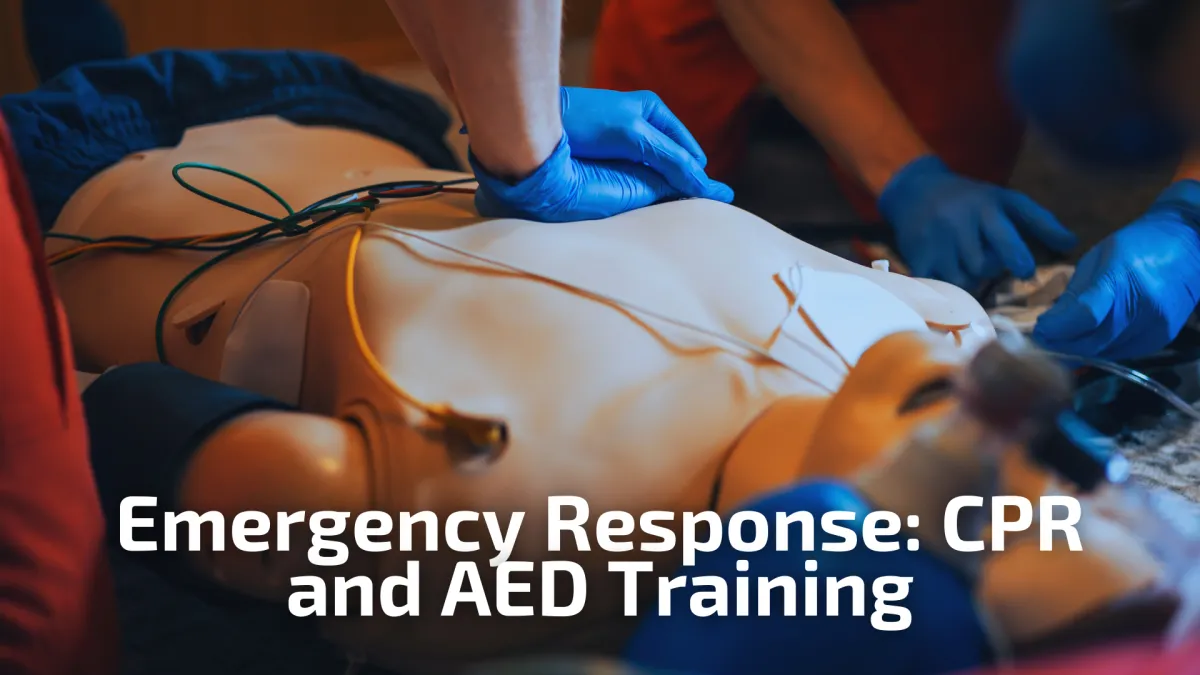
Hazard communication in the workplace (OSHA 29 CFR 1910.1200)
This course is designed for all employees who use or may be exposed to hazardous chemicals during their work activities. It includes operational staff as well as supervisors, technicians, and industrial safety personnel.
It also provides guidance for employers, maintenance managers, and area leaders who need to implement or maintain a Hazard Communication program in compliance with OSHA standards.
Machine Safety – OSHA 29 CFR 1910.30 Compliance
This course is intended for machine operators, maintenance technicians, plant supervisors, industrial safety personnel, and team leaders who are responsible for operating, inspecting, or maintaining mechanical equipment in the workplace.
It is also designed for employers, safety managers, and administrative staff who need to ensure compliance with OSHA standards in their workplaces.
Emergency Response: CPR and AED Training
This course has been designed to provide workers and supervisors with the essential knowledge and skills to respond quickly, safely, and effectively to a medical emergency while waiting for professional assistance.



Aircraft Safety Wire Procedures: Essential Installation & Inspection
This course is designed for technicians, inspectors, and maintenance personnel who perform or supervise safety wire installations on aircraft, promoting the correct application of established practices to maintain the integrity and safety of mechanical components.
Electrostatic Discharge (ESD) Prevention and Control
This course is designed to provide technical, maintenance, and aerospace manufacturing personnel with the knowledge and practical skills necessary to prevent, control, and mitigate the effects of electrostatic discharges, thereby ensuring the integrity of electronic components and the overall quality of aerospace processes.
Forklift Safety and Operation for Operators
This course is designed to enable the operator to acquire the knowledge, skills, and attitudes necessary to operate a forklift safely and efficiently, in compliance with current regulations.



Forklift Safety and Operation for Supervisors
This course has been designed to provide supervisors with the skills and knowledge necessary to manage, oversee, and optimize the safe operation of forklift trucks. Its purpose is to strengthen safety leadership, improve the ability to identify and control risks, and ensure that operators perform their tasks in accordance with established standards.
Aviation Precision & Calibration
This course has been designed for aviation maintenance and technical personnel. Throughout this training, we will cover the importance of precision in aviation and how calibration directly impacts safety, reliability, and the airworthiness of every aircraft.
Complacency in Aviation Maintenance
This course has been designed for personnel who are directly or indirectly involved in aircraft maintenance, inspection, supervision, quality management, and operations, including maintenance technicians, inspectors, engineers, supervisors, and safety personnel.
Do you need help finding specific courses or get special discounts?
Complete the form and a member of our team will contact you as soon as possible.
Contact us at:
DO YOU WANT TO VERIFY IF A CERTIFICATE IS AUTHENTIC?
Each certificate issued by our platform has a unique ID that validates its authenticity and links it to our internal database. To verify a certificate, interested parties can contact us at:
Once we receive the request, we will provide a unique verification link that allows them to view and authenticate the document directly on our platform.
